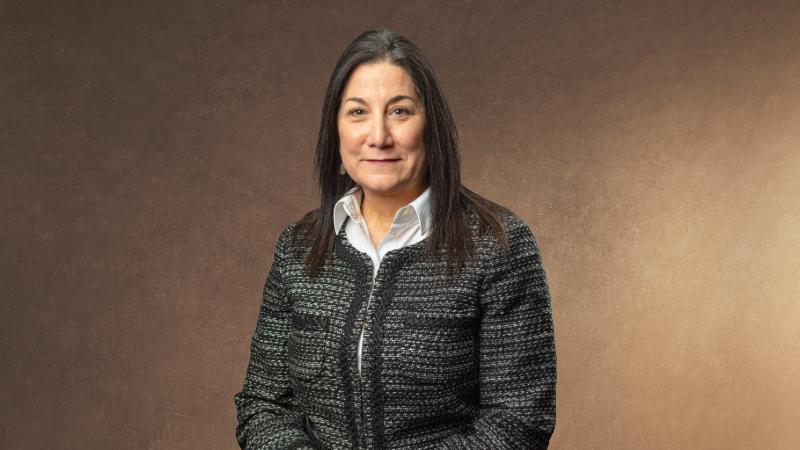
January 28, 2022
January is “Cervical Cancer Awareness Month.” This is the perfect time to highlight the importance of getting your regular women’s health screenings. The conventional screening called a “PAP” smear was developed by Dr. George Papanicolaou in the 1940s. It is the most common cancer screening test for women and consists of a pelvic exam and sampling of the cervical cells, which are then sent off to a pathologist at a lab to review for any abnormal or cancerous cells. It looks for precancers so that they can be treated before they turn into cervical cancer. Presently, cervical cancer accounts for less than 1% of cancer-related deaths among Montana women, due in large part to the success of cervical cancer screening.
Who should be screened?
The CDC and the U.S. Preventive Services Task Force (USPSTF) recommends PAP testing starting for women at age 21. Per new guidelines, you should not be screened prior to age 21, regardless if you’re sexually active. If your test result is normal, you can test every 3 years from age 21 to 64 years old. However, if you are 30 years old or older, you have 3 options: 1) pap test only every 3 years, 2) HPV test only every 5 years, or 3) HPV and pap test and repeat every 5 years if both are negative. It’s always important to talk to your health care provider for guidance, as recommendations can change and they will help walk you through next steps if a screening comes back abnormal.
When can screening be stopped?
Women no longer have to get screened after age 65 if they have had three normal pap smears or two negative HPV plus pap smear tests in the last 10 years. Additional screening due to other health conditions or screening after a hysterectomy (removal of the uterus and cervix) after the age of 65 should be discussed with your own personal provider.
Can cervical cancer be prevented?
Yes! In addition to prevention screening, getting the Human Papilloma Virus (HPV) vaccination known as the Gardasil vaccine can also help prevent cervical cancer
What is HPV and how does it cause cancer?
Human papilloma virus (HPV) is the most common sexually transmitted infection in the United States. HPV is a viral infection that is passed between people through skin-to-skin contact. It causes all the types of warts including genital warts and even harmless plantar warts! There are over 100 varieties of HPV, more than 40 of which are passed through sexual contact and can affect your genitals, mouth, or throat. Luckily, most HPV infections (nine out of 10) go away by themselves within two years. But, sometimes these HPV infections will last longer and can cause some cancers by turning normal cells into abnormal cells (called precancerous cells). If you don’t remove the precancerous cells, they can keep growing and cause cancer. HPV infections can cause cancers of the cervix, vagina, and vulva in women, penis in men, anus in both men and women, and back of the throat (called oropharyngeal cancer) or the tongue and tonsils in both men and women. Every year in the U.S., HPV causes about 36,000 cases of cancer in men and women.
However, due to significant medical advancements, a vaccine has been developed to help prevent the most dangerous types of HPV and their transmission. These vaccines are given to children before sexual activity and can be started as early as nine years of age. The CDC recommends that children who get the first dose before they turn 15 only receive two doses, and those who get the first dose on or after they are 15, receive three doses. Because HPV affects both men and women, it is recommended for both boys and girls.
If I had the HPV vaccine, do I really need to still do pap smears?
Yes! HPV vaccination prevents new HPV infections, but does not treat existing infections or diseases. This is why the vaccine works best when given before any exposure to HPV.
I don’t have insurance or I’m underinsured, can I still get screened?
There are many cervical cancer screening programs and services available for residents of Lewis and Clark, Jefferson, Broadwater, and Meagher counties. There may be free breast and cervical cancer screenings for individuals who are uninsured or underinsured, and who meet the age and income guidelines. If the results of the testing are abnormal, the program also covers the costs of follow-up tests. For more information regarding the Cancer Screening Program, contact the Health Educator at 406-457-8923 or the Lewis and Clark County Cancer Screening website. Residents of other Montana counties You can get more information about free cancer screening by calling the Montana Cancer Screening Program, 1-888-803-9343.
Dr. Sara O’Connell is a Family Medicine and Obstetrics physician at St. Peters’ Health and provides care for patients of all ages. She has practiced at St. Peter’s since 2013 and is board certified by the American Board of Family Medicine.


